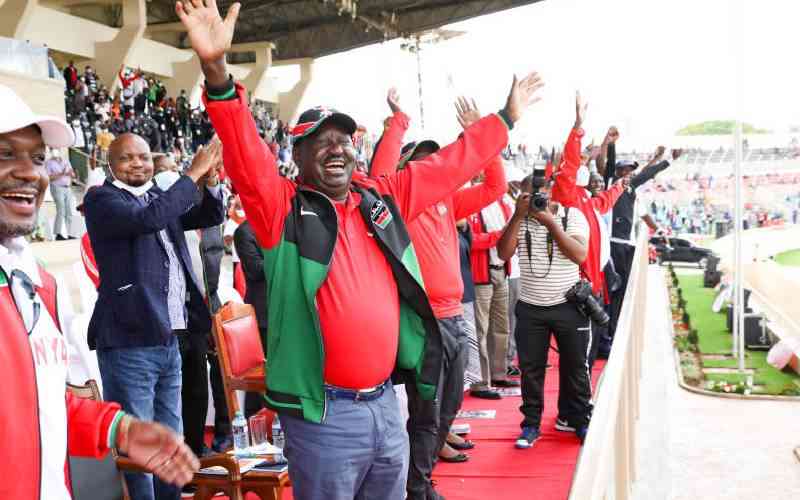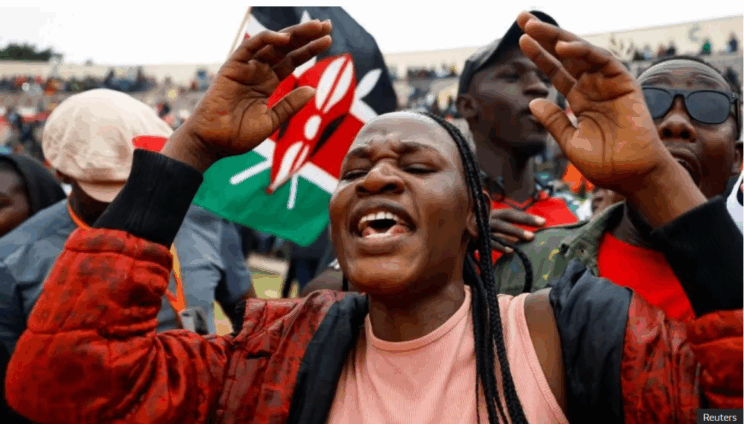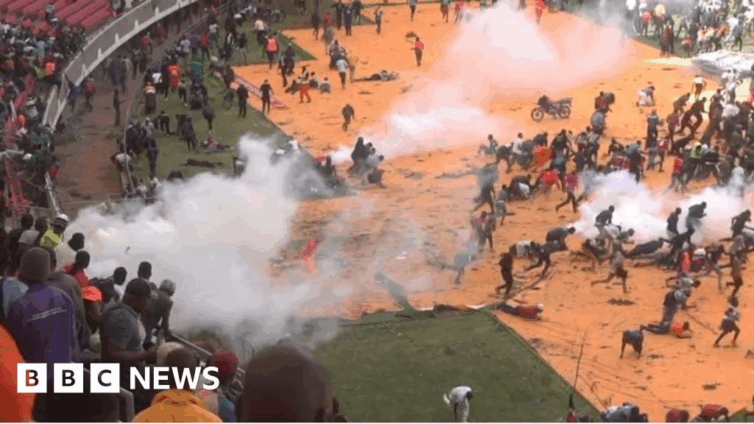Kenya Mourns a Giant: Raila Odinga's Emotional Final Journey Unites a Nation
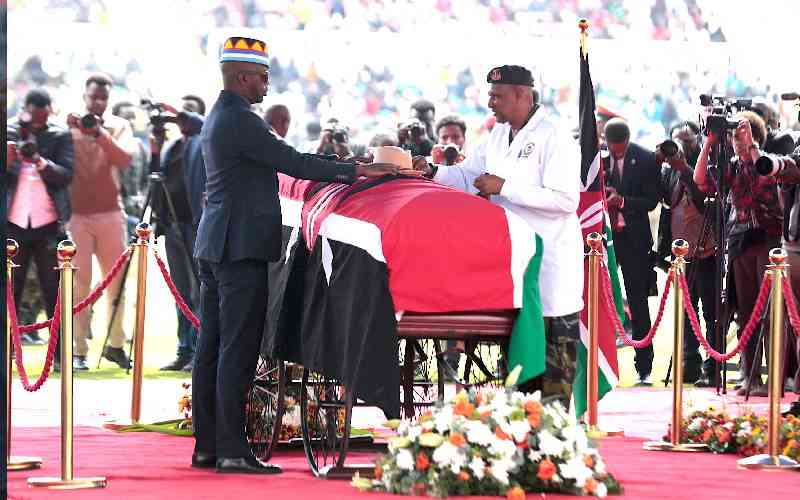
Kenya bid a solemn farewell to one of its most revered politicians, former Prime Minister Raila Amolo Odinga, at a state funeral service held on October 17, 2025, at Nyayo National Stadium in Nairobi. The event, declared a state funeral by President William Ruto—the highest honor the nation can accord a citizen—reflected Odinga's immense standing as a national leader whose influence transcended political divides. Under a grey and drizzling sky, thousands of mourners, many carrying branches as traditional symbols of grief and wearing T-shirts bearing his image, wept, sang, and paid their final respects.
The emotional send-off was attended by current and former Heads of State, including the Presidents of Somalia and Ethiopia, and numerous dignitaries. President William Ruto, speaking of his former rival, acknowledged Odinga's enduring legacy to multi-party democracy, stating, "Every once in a generation, there comes a leader whose impact transcends their moment." However, the day was not without tragedy; two mourners died as crowds surged forward to view Odinga's coffin during the lying in state, with Médecins Sans Frontières reporting 163 patients treated and 34 referred for further care at a field hospital. This followed earlier incidents on Thursday when at least three people died after police engaged huge crowds who had gathered to escort Odinga's body from the airport upon its arrival from India.
Raila Odinga, who passed away aged 80 at a hospital near Kochi, India, on Wednesday, October 15, 2025, never achieved the presidency despite five attempts. Yet, his daughter Winnie Odinga told mourners that he had risen again each time "with grace, forgiveness and hope." She emphasized, "I learned from him that love for country is not just in words; it is in sacrifice. That justice must be pursued even when the path is lonely. True leadership is service, not power." His political struggle was epitomized by the chant that broke out as his body entered the stadium: "Raila usilale, bado mapambano" (Raila, don't sleep, the struggle is not over)—a symbolic appeal for his spirit to remain watchful.
Odinga's legacy is deeply etched in Kenya's democratic journey. He dedicated most of his adult life "in the arena," battling tyranny as the longest-serving political detainee in the 1980s and valiantly striving for a new constitutional dispensation in the 1990s and early 2000s. As an opposition leader, he championed the rule of law and a better-governed Kenya. Former US President Barack Obama eulogized him as a true champion of democracy, highlighting his decades of struggle and sacrifice, and his willingness to prioritize the country's interests over his own ambitions, choosing peaceful reconciliation without compromising his core values.
His belief in constitutionalism, ironically, sometimes became a "poisoned chalice," as he adhered to the rule of law even when others took shortcuts. He was motivated by ideas, organizing coalitions and running for office multiple times, demonstrating a desire to use power to effect change rather than merely being a "performative or symbolic oppositionist." Odinga inspired ordinary Kenyans to dream more, learn more, do more, and become more, embodying the definition of a true leader. He detested name-calling and instead rallied the nation around reforms, leaving an indelible mark on the nation's political consciousness.
Behind Raila's storied political life stood Ida Betty Odinga, his wife and unwavering pillar for over five decades. Born Ida Anyango Oyoo on August 24, 1950, she grew up in a family valuing education and discipline. After meeting Raila, an engineering lecturer, at the University of Nairobi in 1972, they married on September 1, 1973, embarking on a partnership that would navigate countless political storms, detentions, and transformations. Ida, initially a teacher at Kenya High School, endured immense personal sacrifice, including raising their young children alone after Raila's 1982 detention without trial, during which she was even expelled from her teaching post and ordered to vacate staff quarters for being the wife of an "enemy of the state."
Beyond her role as a supportive spouse, Ida carved her own formidable legacy as an educator, women's rights advocate, and trailblazer in corporate leadership. In 1991, she founded the League of Kenya Women Voters (LKWV) to empower women in governance and public decision-making, emphasizing that "A society that silences its women silences its own future." Her activism extended to women's health and mentoring schoolgirls, including leading a Sh176.9 million fundraising drive to build a modern library at her alma mater, Ogande Girls High School. In 2003, she became the Managing Director of East African Spectre, a family-owned liquefied gas cylinder manufacturing company, breaking ground as one of the first women to head a major corporation in Kenya. Now 75, Ida Odinga stands as a symbol of resilience, steadfast commitment to justice, education, and equality.
Following the state funeral in Nairobi, Raila Odinga's body was taken to parliament for viewing by MPs and selected dignitaries. On Saturday, October 18, 2025, his body was transported by a Kenya Defence Forces (KDF) chopper to Kisumu, his political stronghold in western Kenya. Thousands of mourners gathered at the Jomo Kenyatta International Stadium in Mamboleo for a public viewing, with heavy security deployed to maintain order. Mourners arrived from as early as 5 am, carrying tree branches and chanting "Jowi! Jowi!", a traditional Luo warrior cry honoring fallen heroes. Strict measures were in place, including no speeches, to ensure a solemn atmosphere.
His final journey will conclude on Sunday, October 19, with his burial at his farm in Bondo, Siaya County, about 60km west of Kisumu. The Odinga family stated that it was his wish to be laid to rest within the shortest time possible, ideally within 72 hours. A seven-day period of national mourning has been declared for the iconic leader who shaped Kenya's democratic path.
Notably, former Deputy President Rigathi Gachagua was conspicuously absent from the state funeral, even as other key opposition figures like Kalonzo Musyoka, Fred Matiang’i, and Martha Karua attended. A high-ranking associate of Gachagua explained his absence, citing intelligence reports on the possibility of a hostile reception and concerns that the opposition would be sidelined during the service—a sentiment echoed by Kalonzo Musyoka, who did not get an opportunity to eulogize Odinga despite being his former running mate. Gachagua, according to the associate, chose to honor Odinga's legacy peacefully, suspending all public engagements during the period of grief and expressing his condolences through social media.
You may also like...
Embiid's Back! 76ers Star Returns After Nearly 8-Month Absence

Joel Embiid made a triumphant return to the court for the Philadelphia 76ers after an eight-month absence due to knee su...
Vegas Takes Over! Aces Crowned WNBA Champs, Parade Lights Up The Strip

The Las Vegas Aces celebrated their third WNBA championship in four years with a spectacular parade down the iconic Las ...
Shockwave in Hollywood: ‘9-1-1’ Actor Loses Landmark COVID Vaccine Lawsuit Against Disney!

"9-1-1" actor Rockmond Dunbar's lawsuit against Disney-owned 20th Television, alleging religious discrimination over COV...
Aged 99, Sir David Attenborough Smashes Emmy Record, Becomes Oldest Winner Ever!

Sir David Attenborough has become the oldest ever Daytime Emmy winner at 99, taking home the award for Outstanding Dayti...
Gucci Mane Reveals Past Peacemaking with Drake and Young Thug!

Gucci Mane reflects on his journey in rap, sharing how he apologized to Drake for a past Twitter tirade and extended for...
Country Legend Waylon Jennings' Lost Track 'Songbird' Dominates Billboard Charts!

"Songbird," a new collection of previously unheard recordings from Waylon Jennings, has earned the late country icon his...
Morena Baccarin Unpacks 'Sheriff Country' Character Mickey's Controversial Moral Code
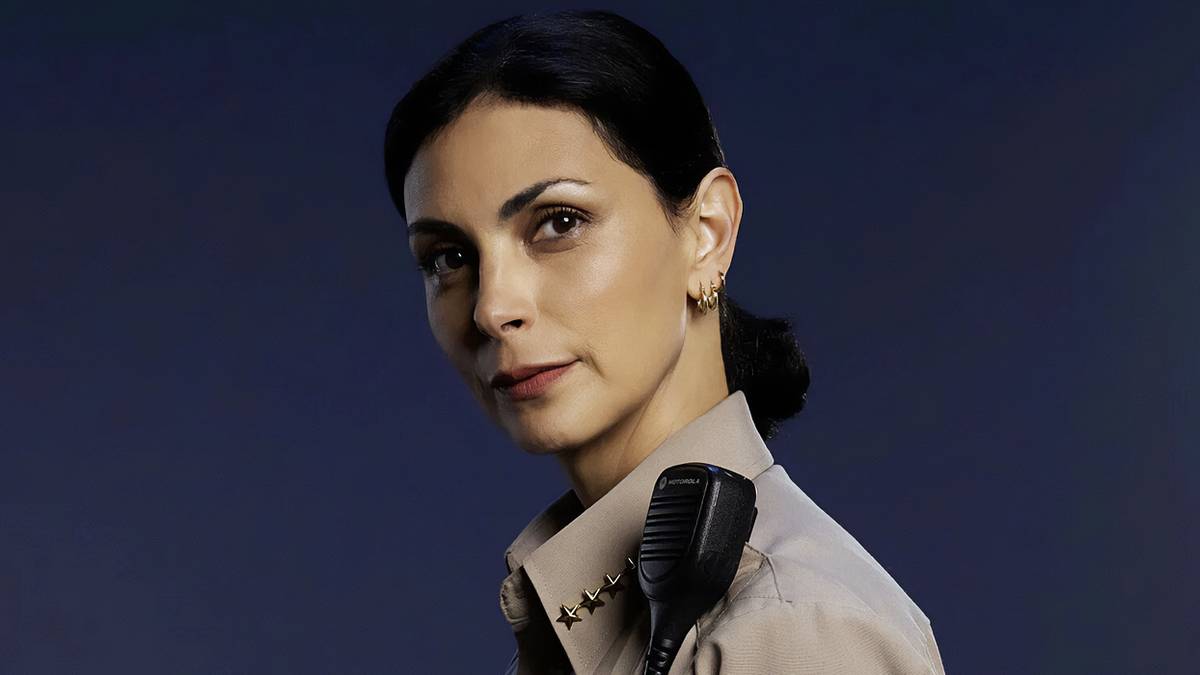
In the new CBS series 'Sheriff Country,' Morena Baccarin stars as Sheriff Mickey Fox, a seasoned law enforcement officer...
Fire Country Shocker: Showrunner Breaks Silence on Season 4 Premiere Death and Wild Future

Season 4 of 'Fire Country' sees Edgewater and Station 42 grapple with the monumental death of Vince Leone, impacting Bod...
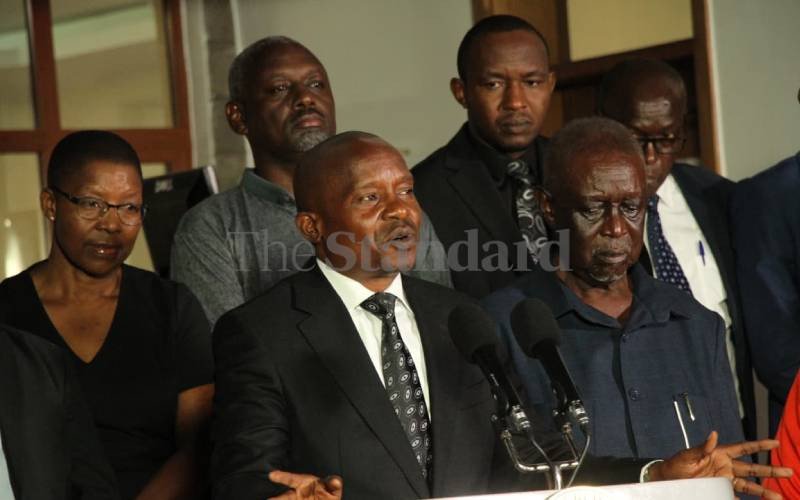
&format=jpeg)
